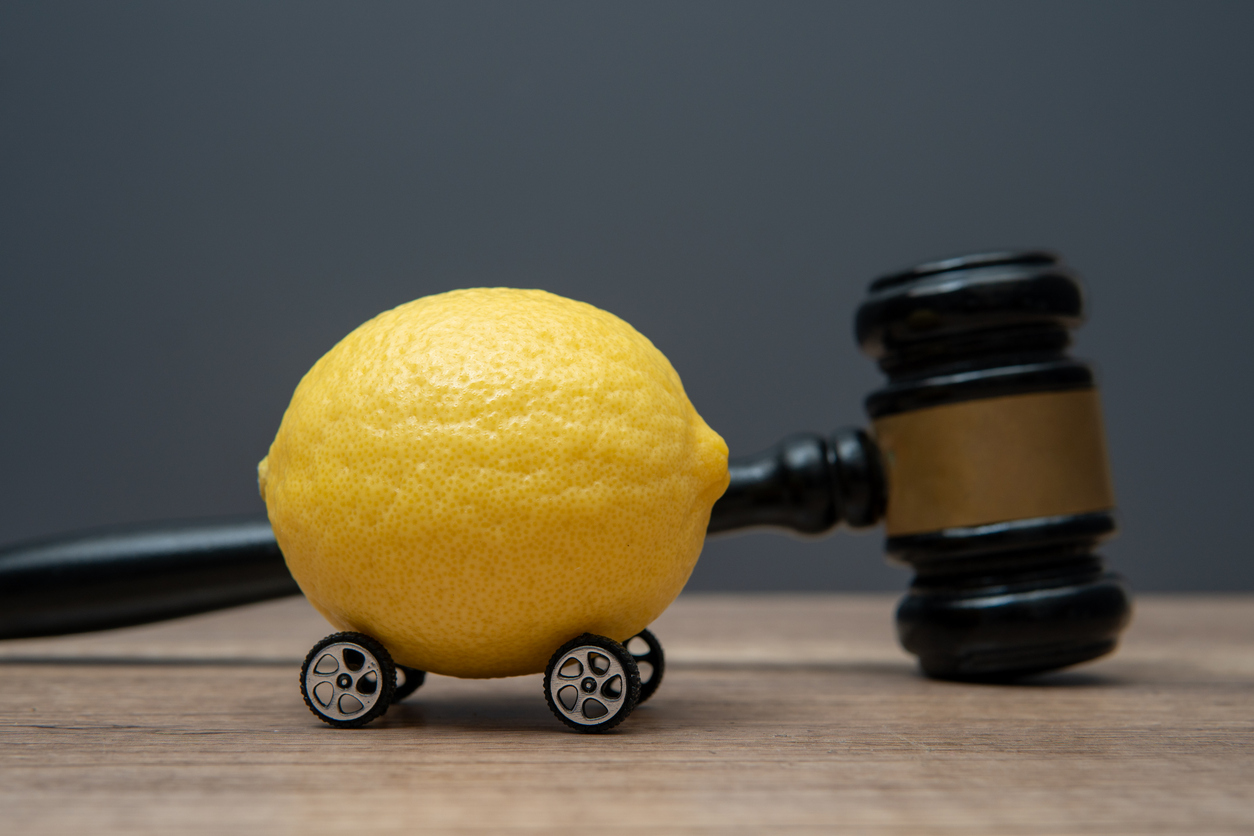- 2 Nov 2025

For vehicle owners pursuing winning a lemon law case in California, arbitration often becomes a critical turning point. California’s lemon law protects consumers when repeated repairs fail to fix substantial defects, but the process of seeking remedies can be influenced by whether arbitration is required or elected. While some car manufacturers promote arbitration as a simpler alternative to litigation, the outcome of arbitration can have significant consequences for consumers. Understanding how arbitration works, when it applies, and how it may affect the likelihood of success is essential for anyone navigating a lemon law dispute.
The Role of Arbitration in Lemon Law Cases
Arbitration is an alternative dispute resolution process where a neutral third party reviews evidence and arguments before issuing a binding or non-binding decision. In the context of winning a lemon law case in California, arbitration is frequently encouraged by manufacturers who participate in state-certified arbitration programs. The process is designed to be faster and less formal than a courtroom trial, but it can still carry substantial weight in determining whether a consumer receives compensation, a replacement, or a refund for their defective vehicle.
California has specific guidelines under the Song-Beverly Consumer Warranty Act that frame how arbitration fits into lemon law disputes. While arbitration decisions are not always final, they often influence whether a consumer proceeds to litigation and the strength of their eventual legal claim.
Why Arbitration Can Make or Break Winning a Lemon Law Case in California
The impact of arbitration on winning a lemon law case in California depends largely on how the process is structured. Manufacturers often favor arbitration because it may limit their liability and reduce costly trial exposure. For consumers, however, arbitration may present both opportunities and risks.
On one hand, arbitration provides a quicker resolution and does not typically involve the same procedural hurdles as a full lawsuit. On the other hand, arbitrators may be influenced by evidence presented by manufacturers and may not interpret consumer protections as broadly as courts do. This dynamic means arbitration outcomes are often less favorable to consumers compared to court judgments, though there are cases where arbitration has successfully provided full compensation.
Arbitration Programs Recognized in California
California recognizes state-certified arbitration programs that manufacturers use to resolve lemon law claims. These programs must comply with standards that ensure fairness and transparency, but critics argue that they still tend to favor manufacturers. The California Department of Consumer Affairs has oversight authority over these programs, and consumers can review official guidance on California arbitration and consumer rights to better understand how the process works. Participation in arbitration is not mandatory for consumers, but in many cases, manufacturers will require that arbitration be attempted before litigation can proceed. This structure shapes the initial path toward winning a lemon law case in California and highlights the importance of understanding arbitration’s limitations.
Arbitration vs. Litigation: The Strategic Difference
The decision to arbitrate or litigate often sets the trajectory of a lemon law case. For individuals concerned with winning a lemon law case in California, the difference lies in procedure, evidentiary standards, and remedies available.
Arbitration generally operates with looser evidentiary rules, meaning certain consumer claims may not receive the same consideration they would in court. Litigation, by contrast, allows for formal discovery, cross-examination of witnesses, and judicial review. Consumers who begin in arbitration but are dissatisfied with the decision may still pursue litigation, but the arbitration outcome can influence negotiations and the court’s perception of the claim.
Manufacturer Incentives in Arbitration
Manufacturers encourage arbitration because it often protects them from larger financial liability. They may promote the idea that arbitration is fair, simple, and efficient, but the underlying incentive is to resolve disputes outside of court. For consumers seeking winning a lemon law case in California, recognizing these incentives is important. Arbitration may limit available damages or frame disputes in a way that benefits the manufacturer.
Arbitration Outcomes and Their Impact on Success Rates
Arbitration outcomes can vary widely. Some consumers achieve favorable results, receiving either a replacement vehicle or reimbursement of costs. Others, however, encounter decisions that minimize compensation or reject claims altogether. When arbitration results are unfavorable, consumers may still turn to litigation, but the process can delay resolution and complicate strategy.
Because success rates vary, arbitration should be approached with caution. Understanding the factors that arbitrators weigh—such as repair documentation, warranty terms, and defect history—is essential to improving the odds of winning a lemon law case in California even when arbitration is the first step.
Documentation and Evidence in Arbitration Proceedings
Strong evidence is the foundation for success in arbitration. Vehicle owners should maintain detailed records of repair attempts, communications with dealerships, and warranty coverage. The presentation of this documentation in arbitration mirrors the importance it carries in court. Without adequate evidence, consumers risk losing credibility, which can undermine the chances of winning a lemon law case in California.
Manufacturers often arrive at arbitration with extensive documentation and legal support, so consumers must be equally prepared. Even though arbitration is less formal than trial, the decision hinges on the strength of evidence presented.
Arbitration’s Influence on Negotiated Settlements
Even when arbitration does not result in a favorable decision, the process can influence settlement negotiations. Manufacturers may use arbitration as leverage to reduce payouts, while consumers who demonstrate strong evidence during arbitration may encourage manufacturers to settle rather than risk further litigation. This dynamic reinforces the idea that arbitration is not just a dispute resolution method but a strategic stage that can shape the broader pursuit of winning a lemon law case in California.
How Arbitration Intersects with California Lemon Law Rights
The protections of the Song-Beverly Consumer Warranty Act remain intact regardless of arbitration. Consumers retain the right to pursue remedies in court, and arbitration decisions cannot erase statutory protections. However, arbitration can impact timelines, settlement discussions, and consumer confidence. For this reason, individuals pursuing winning a lemon law case in California must understand that arbitration is one phase of a larger legal process, not the final word.
For consumers who want deeper insights into probabilities of success, additional resources on the odds of winning a lemon law case in California provide context on how arbitration and litigation outcomes compare. This type of analysis helps consumers evaluate whether arbitration aligns with their legal goals.
Conclusion
Arbitration significantly influences the path toward winning a lemon law case in California. While it offers a quicker and less formal resolution process, it can limit consumer remedies and often favors manufacturers. Arbitration outcomes may shape future litigation strategies, influence settlement negotiations, and determine the timing of compensation. For consumers, understanding arbitration’s role in lemon law disputes is essential. The decision to accept arbitration or proceed to litigation should be made with full awareness of how each path affects the likelihood of success under California’s consumer protection laws.
Recent posts
- 17 Oct 2025
Categories
- Accident & Injury Law (54)
- AI (1)
- Copyright Law (1)
- Criminal & Civil Law (17)
- Disability Law (2)
- Driving Law (2)
- Employment Law (1)
- Estate Planning (2)
- Family & Relationship Law (29)
- Food and Drink (2)
- Gas Exposure (1)
- Health (1)
- Immigration Law (2)
- Injury Claim (1)
- Insurance Law (7)
- Legal (40)
- Lemon Law (4)
- Mediation (3)
- Medical Malpractice (1)
- Property & Business Law (9)
- Severance Agreement (1)
- Travel and Leisure (1)
- Uncategorized (12)
- Worker Compensation (2)




